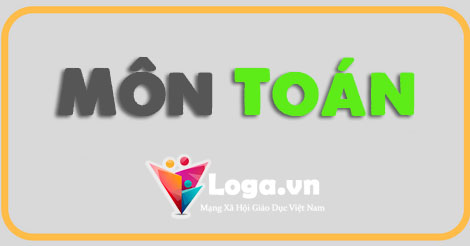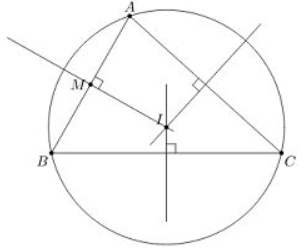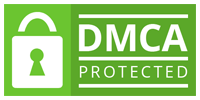Các chủ đề từ vựng THPT
TOPIC: TECHNOLOGY
Các bài liên quan :
Unit 5: Inventions ( Tiếng Anh 10)
Unit 8: New ways to learn ( Tiếng Anh 10)
Unit 9: Cities of the future ( Tiếng Anh 11)
Unit 4: The mass media ( Tiếng Anh 12)
Unit 7: Artifical intelligence ( Tiếng Anh 12)
I. Vocab
- Technology (n): Công nghệ
Adj+ technology: the latest ( mới nhất), modern, new, advanced, low, complex, high, sophisticated, state-of-the-art, up-to-date, alternative, innovative...
V+ technology: have, adopt, apply, introduce, take advantage of, use, creat, develop, improve...
Technology+ V: develop, enable, allow..
Advances in technology: tiên tiến trong công nghệ
Technological (a): thuộc công nghệ
Technophile (n): người thích công nghệ mới
Technophobe (n): người ghét công nghệ mới
Computer technology/ICT (n): công nghệ máy tính
Information technology (n): công nghệ thông tin
- Geek (n): chuyên gia/ người đam mê công nghệ máy tính ~ a computer buff
- Innovation (n): sự đổi mới
Innovative (a): đổi mới
- Advance (n): sự tiên tiến, sự phát triển
Adj+ advance : big, considerable, dramatic (mạnh mẽ), enormous, great, substantial, tremedous,major, important, significant, recent, technological..
V+ advance: make
Advance + prep: in
Advanced (a): tiên tiến
- Invention (n): sự phát minh
Adj+ invention: latest, new, modern, brilliant, wonderful, successful,...
V+ invention : come up with, design
- Revolution (n): cuộc cách mạng
Revolutionize (v): cách mạng hóa
Revolutionary (a): mới và quan trọng= radical=groundbreaking=world-shattering=innovatory
- Breakthrough (n): sự đột phá
Adj+ breakthrough: big, crucial( quan trọng), great, historic, important, medical, political, scentific,....
V+ breakthrough :be, represent, achieve, make...
- Cutting-edge(a)= State-of-the-art(a)= Up-to-date: mới mẻ, hiện đại
- Labour-saving (a): tiết kiệm sức lao động
- Out-dated= old- fashioned(a): lạc hậu, lỗi thời ~ obsolete
- Crash : đột nhiên ngừng hoạt động => computer crashes: máy tính hỏng
- Digital (n): kĩ thuật số => digital age: thời đại kĩ thuật số
- Gadget (n): thiết bị nhỏ, máy cải tiến
- Surf/ browse the web: lướt mạng
- To be bound to do st: chắc chăn làm gì
- Visual display unit: màn hình
- Technical failure: lỗi kĩ thuật
- to back up files: Lưu trữ bản sao của các tài liệu phòng trường hợp máy tính gặp sự cố
- to go online: sử dụng internet
- digital native: người sinh ra trong thời đại kĩ thuật số
- e-books: sách điện tử
Một số cụm từ khác:
- Better one’s lives: cải thiện cuộc sống
- Tend to do st = have tendency to do st= have a tendency of st: có xu hướng làm gì
- For better or worse: dù thế nào đi chăng nữa
- Out of steam ~ exhausted :mệt
- To be stuck behind a computer : sử dụng máy tính trong khoảng thời gian dài
- Double- edged sword : con dao hai lưỡi
- To widen our knowledge: mở rộng tri thức
- Break the new ground: tạo đột phá
II. Exercise
Exercise 1: Complete the sentence using given words in the box
|
Cutting-edge |
Digital natives |
e-books |
|
Internet connection |
outdated |
technophobes |
1. Some people think that simpler forms of technology are more effective than________ solutions that can be lesss reliable.
2. If customers invest in new technology, it may quickly become _______ or obsolete.
3. __________ find it easy to adapt to new technologies.
4. Not everyone is equally enthusiastic about these advances and some ________ even refuse to own a mobile phone.
5. One example of how new technology can harm more traditional industries is the negative impact __________ are having on old-fashioned publishing
6. This can be seen by how in just 10 years most people expect to have an ________ and are disappointed if it is not broadband.
key:
|
1 |
Cutting-edge (a): hiện đại mới mẻ |
|
2 |
Outdated (a): lạc hậu, lỗi thời |
|
3 |
Digital natives (n): người sinh ra trong thời đại kĩ thuật số |
|
4 |
Technophobes (n): người ghét, sợ công nghệ |
|
5 |
e-books (n): sách điện tử |
|
6 |
Internet-connection (n): kết nối internet |
Exercise 2: Read the following passage and mark the letter A, B, C, or D on your answer sheet to indicate the correct answer to each of the questions from 1 to 5.
Although computers are considered the most perfect and effective devices in our modern time, we cannot avoid some certain problems when we are working on a computer. Letters and phone conversations are private. It is against the law to open someone's mail without permission or to listen secretly to someone's telephone conversation. And now there are laws to protect the privacy of e-mail. It is also against the law to read the messages that a person sends or receives on a computer. Although each person has a secret password for his or her e-mail, sometimes the passwords are discovered by hackers and the mailbox is opened. Recently several companies that do business on the Internet have been attacked. The attackers sent huge amounts of useless e-mails to the Web sites of these companies. The effect was to slow or stop the ability of the companies to do their business. Such actions are known as "denial of service" attacks. The companies say they may have lost millions of dollars because they were not able to provide goods and services during the attacks. Most of the companies were able to solve the problem in about three hours. The victims of the attacks included some of largest and most successful companies on the Internet, such as Yahoo, Amazon, and Com and E-Trade. The police have investigated the attackers. The computer industry leaders have discussed the electronic attacks and the problems of computer crime. They suggest that a person who is found guilty of such a crime should be sentenced to at least lo years in prison.
Question 1: It is___to read the messages that a person send or receive on a computer.
A: legal
B: illegal
C: encouraged
D: advisable
Question 2: Which sentence is true?
A: It is quite secret to send or receive messages through the Internet.
B: We need a password to open an e-mail box.
C: We never have problems with e-mail.
D: E-mails on the Internet are open letters.
Question 3: What happened to some companies that do business on the Internet?
A: They were electronically attacked.
B: They were closed because they are broke.
C: They stopped working because all computers were out of order.
D: They stopped working because of no power.
Question 4: What did the hackers do?
A: They attacked the network by computer viruses.
B: They made a lot of order through the Internet.
C: They sent a lot of e-mails to the companies.
D: They sent useless e-mails to the Web sites of these companies.
Question 5: Most of the companies ______.
A: could solve the problem
B: could not solve the problem
C: closed
D: were sentenced to about ten years in prison
Key:
Q1. B
Illegal (a) trái luật, phạm pháp. Thông tin này nằm ở câu: "It is also against the law to read the messages that a person sends or receives on a computer." (Việc đọc tin nhắn một người gửi hay nhận trên máy tính cũng là phạm pháp).
Q2. B
Điều này có thể được suy ra từ thông tin trong câu: "Although each person has a secret password for his or her e-mail, sometimes the passwords are discovered by hackers and the mailbox is opened." (Mặc dù mỗi người có một mật khẩu bí mật cho email của mình, đôi khi những mật khẩu đó cũng được khám phá ra bởi các tin tặc (hacker) và hộp thư bị mở ra). Các đáp án còn lại đều không hợp lý.
Q3. A
Thông tin này nằm ở câu: "Recently several companies that do business on the Internet have been attacked." (Gần đây một số công ty kinh doanh trên mạng Internet đã bị tấn công).
Q4. D
Thông tin này nằm ở câu: "The attackers sent huge amounts of useless e-mails to the Web sites of these companies." (Những kẻ tấn công đã gửi một số lượng lớn email rác đến trang web của các công ty này).
Q5. A
Thông tin này nằm ở câu: "The attackers sent huge amounts of useless e-mails to the Web sites of these companies." (Những kẻ tấn công đã gửi một số lượng lớn email rác đến trang web của các công ty này).







